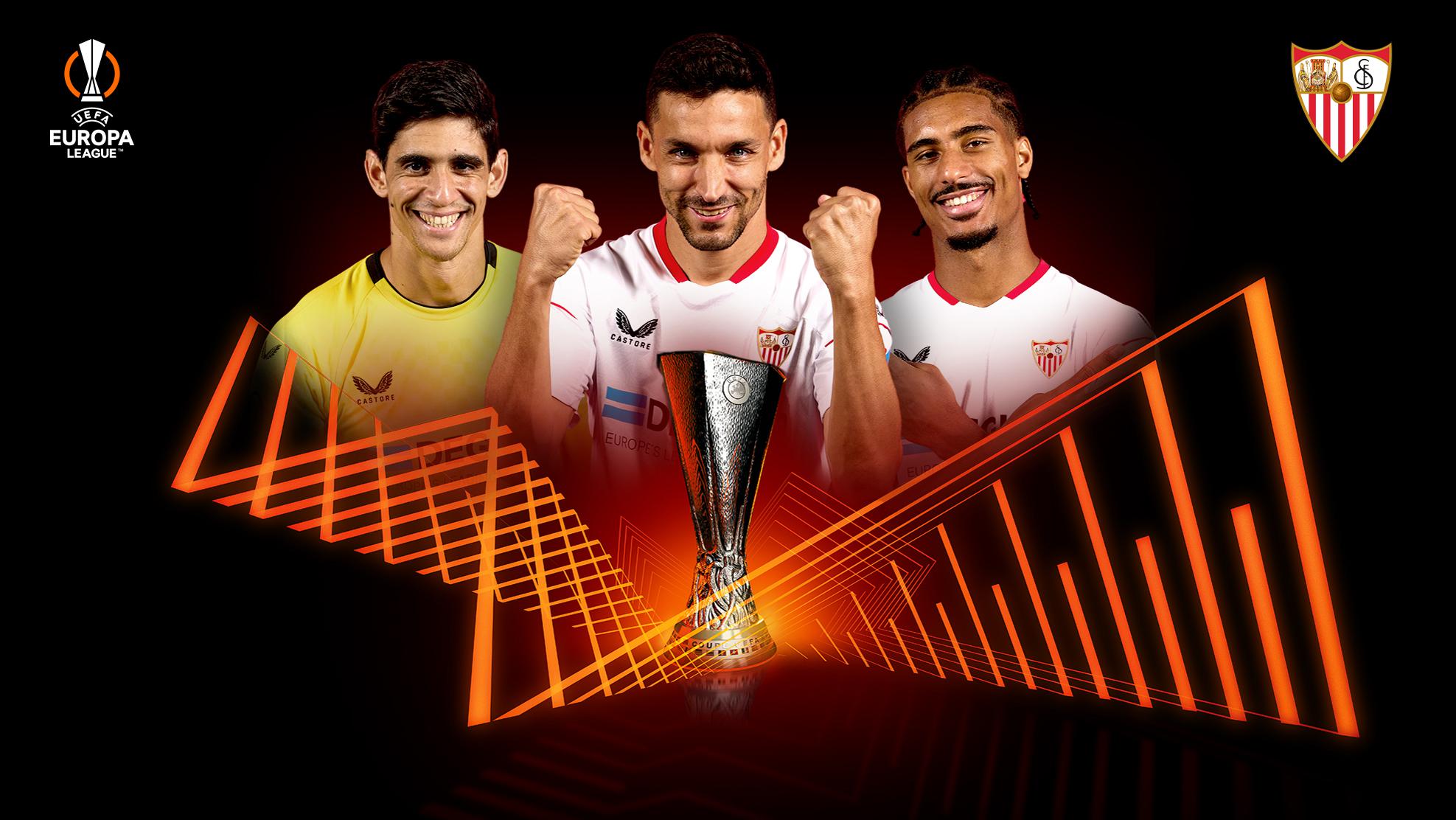Europa League Prize Money: Breaking Down The Financial Rewards
After some analysis and digging, we put together this Europa League Prize Money: Breaking Down The Financial Rewards guide to help you make the right decision.
Key Differences/Takeaways:
| Key Differences | Key Takeaways |
|---|---|
| 1 | Winners of the UEFA Europa League receive €8.6m in prize money. |
| 2 | The losing finalists receive €4.6m. |
| 3 | The semi-finalists receive €2.3m each. |
| 4 | The quarter-finalists receive €1.15m each. |
| 5 | The clubs that finish third in their Europa League group receive €500,000. |
Transition to main article topics:
The Europa League is the second-tier club competition in European football, behind the UEFA Champions League. The competition was founded in 1971 as the UEFA Cup, and was renamed the UEFA Europa League in 2009. The Europa League is contested by clubs from all over Europe, and the winners qualify for the following season's UEFA Champions League.
The prize money for the Europa League is significant, and it can have a major impact on the finances of the clubs involved. The winners of the Europa League receive €8.6m in prize money, while the losing finalists receive €4.6m. The semi-finalists receive €2.3m each, and the quarter-finalists receive €1.15m each. The clubs that finish third in their Europa League group receive €500,000.
The prize money for the Europa League is distributed according to a number of factors, including the club's performance in the competition and its UEFA coefficient. The UEFA coefficient is a ranking system that is used to determine the seeding of clubs in European competitions. Clubs with a higher UEFA coefficient receive more prize money than clubs with a lower UEFA coefficient.
The prize money for the Europa League is an important source of revenue for the clubs involved. The prize money can be used to fund player transfers, stadium improvements, and other club expenses. The prize money can also help to attract top players to the Europa League, which can make the competition more exciting and competitive.
The Europa League is a major competition in European football, and the prize money is a significant factor in the competition's appeal. The prize money can help to fund club expenses, attract top players, and make the competition more exciting and competitive.

Europa-League - MargauxArkady - Source margauxarkady.blogspot.com
FAQ
This Frequently Asked Questions (FAQs) section addresses common queries regarding the financial rewards associated with the Europa League competition.

Rangers Europa League prize money explained as club rise to 3rd in UEFA - Source www.rangersnews.uk
Question 1: What is the total prize money pool for the Europa League?
The total prize money pool for the Europa League is €465 million for the 2022/23 season.
Question 2: How is the prize money distributed?
The prize money is distributed based on each club's performance in the competition, including their ranking in the group stage, progression through the knockout stages, and their overall tournament placement.
Question 3: What is the prize money for winning the Europa League?
The winning team receives €8.6 million as a base prize, with additional bonuses for each round won.
Question 4: Do teams receive prize money for finishing in different positions?
Yes, teams receive varying amounts of prize money based on their final standing in the tournament, with higher-placed teams earning more.
Question 5: Are there any other financial incentives in the Europa League?
Clubs can also earn additional revenue through television broadcast rights, ticket sales, and commercial partnerships.
Question 6: How does the Europa League prize money compare to other European competitions?
The Europa League prize money is significantly lower compared to the UEFA Champions League, which has a total pool of over €2 billion for the 2022/23 season.
In summary, the Europa League prize money structure incentivizes teams to perform well, provides a significant financial boost for participating clubs, and offers opportunities for additional revenue generation.
To explore more in-depth analysis and insights, continue reading the article.
Tips
By analyzing financial rewards, teams can optimize their financial performance and plan for their future.
Tip 1: Understanding the Prize Money Distribution
Familiarize yourself with the Europa League Prize Money: Breaking Down The Financial Rewards structure to know the potential earnings at each stage of the competition.
Tip 2: Maximizing Matchday Revenue
Increase ticket sales, hospitality packages, and merchandise revenue by promoting matches effectively and creating a positive fan experience.
Tip 3: Exploring Commercial Opportunities
Secure lucrative sponsorship deals, broadcast rights agreements, and other commercial partnerships to supplement prize money earnings.
Tip 4: Participating in the UEFA Europa Conference League
Even if a team doesn't qualify for the Europa League, participating in the UEFA Europa Conference League offers financial incentives and exposure.
Tip 5: Utilizing Prize Money for Team Development
Invest prize money wisely in player acquisitions, youth development, and infrastructure improvements to enhance the team's long-term competitiveness.
Summary: A strategic approach to managing financial rewards can unlock substantial benefits for teams competing in the Europa League.
Europa League Prize Money: Breaking Down The Financial Rewards
The UEFA Europa League, the second-tier European club competition, offers substantial financial rewards to participating teams. Its prize money structure is designed to incentivize performance and support club development.
- Participation Bonus: Merely qualifying for the group stage earns a significant sum.
- Match Results: Wins and draws in the group stage and knockout rounds add to the prize pool.
- Final Appearance: Reaching the final guarantees a substantial payout, regardless of the outcome.
- Winning Bonus: The Europa League champions receive a significant bonus, further boosting their financial position.
- Television Revenue: Clubs receive a share of the tournament's television revenue, based on their market exposure.
- Additional Bonuses: Bonuses are awarded for clean sheets, goals scored, and other performance-based criteria.
The prize money in the Europa League not only incentivizes success but also provides financial stability to clubs. It supports player acquisitions, stadium upgrades, and youth development programs, contributing to the overall growth of European football.

3d open gift box with coins and ribbon. Money prize reward. Earn point - Source www.vecteezy.com

Rangers boosted by Celtic exit as Europa League prize money continues - Source www.thescottishsun.co.uk
Europa League Prize Money: Breaking Down The Financial Rewards
The UEFA Europa League is one of the most prestigious club competitions in European football, and as such, it comes with a significant amount of prize money. The total prize pool for the 2022-23 season is €465 million, which is distributed among the participating teams based on their performance.

Champions League vs Europa League prize money - CEO North America - Source ceo-na.com
The winner of the Europa League receives a prize of €8.5 million, while the runner-up receives €4.5 million. The semi-finalists each receive €2.5 million, and the quarter-finalists each receive €1.5 million. Teams that are eliminated in the group stage receive €500,000, and teams that are eliminated in the play-off round receive €250,000.
The prize money from the Europa League is a significant source of revenue for the participating teams. It can be used to fund player salaries, stadium improvements, and other expenses. The prize money can also help to attract top players to clubs, which can then lead to success on the pitch.
The distribution of prize money in the Europa League is based on a number of factors, including the team's performance, the size of their fan base, and the television market in their country. This system ensures that the teams that are most successful on the pitch are rewarded with the highest prize money.
Conclusion
The prize money from the Europa League is a vital source of revenue for the participating teams. It can be used to fund a variety of expenses, and it can also help to attract top players to clubs.
The distribution of prize money in the Europa League is based on a number of factors, including the team's performance, the size of their fan base, and the television market in their country. This system ensures that the teams that are most successful on the pitch are rewarded with the highest prize money.



